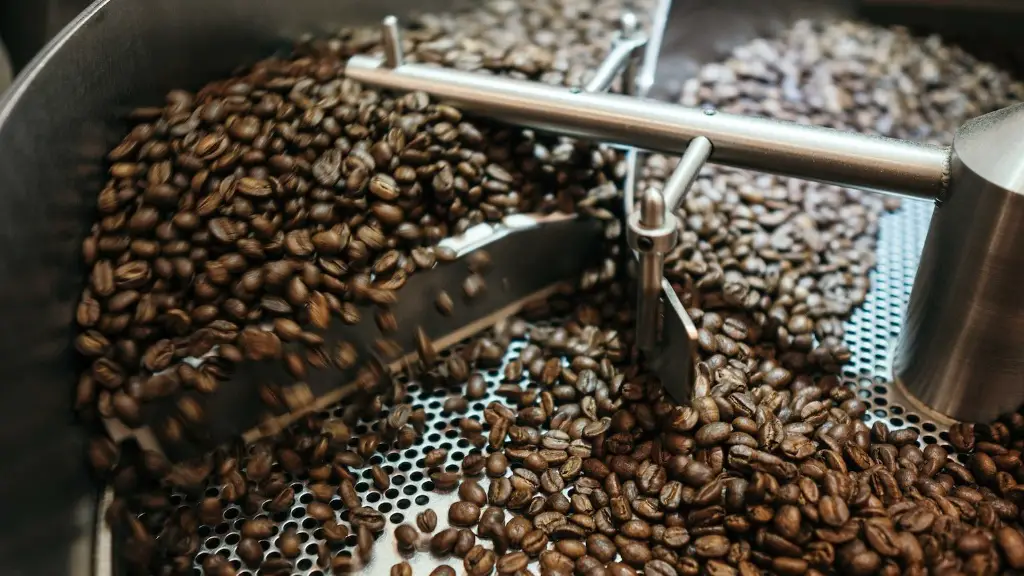Between the fluctuating hormones and lack of sleep, the addition of having a baby to the family can be overwhelming. Many moms may be wondering: Is it safe to drink coffee while breastfeeding? To answer this question, we need to take into account both short-term and long-term risks associated with drinking coffee while nursing.
Caffeine is able to pass from the bloodstream into the breast milk. It is metabolized differently between individuals, depending on how tolerant each person is to caffeine. Thus, for two women drinking the same amount of coffee, one may metabolize it faster than the other. A normal caffeine intake of 250 mg per day as part of a balanced diet is usually considered as a safe limit.
To minimize any potential adverse effects, it is recommended that nursing mothers limit their daily coffee consumption to no more than 2 to 3 8-ounce cups of coffee per day with no added sugar or cream. Any more than this can cause a potentially negative effect on the baby’s sleep patterns and irritability.
Research has found that coffee consumption during breastfeeding can increase baby’s heart rate and blood pressure. This has the potential to then affect its mood. High doses of caffeine in breast milk can cause babies to become fussy, jittery and have trouble sleeping. Research has also linked excessive caffeine consumption during pregnancy to a higher risk of miscarriages and growth issues in babies.
Although experts agree that coffee consumption while breastfeeding is safe if it is in sensible amounts, they also suggest that the mother make sure to get her nutrition from sources other than coffee or caffeine. It is essential for mothers to stay alert and have enough energy to take care of their little ones, however this should be done through a healthy and balanced diet. Eating foods low in saturated fat, cholesterol, and refined sugars while increasing the intake of whole grains, lean proteins and lots of fruits, vegetables, legumes and healthy fats is a great way to provide nourishment for both the baby and the mother.
The Benefits of Coffee During Breastfeeding
Apart from being convenient and relatively inexpensive, research has also found that drinking moderate amounts of coffee during breastfeeding can have beneficial effects that include the prevention of neurodegenerative diseases, antioxidant protection and reduced inflammation. Furthermore, some studies have also suggested that regular coffee drinking can even reduce the risk of breast cancer.
Tips for Safe Coffee Consumption During Breastfeeding
When deciding whether or not to consume coffee while breastfeeding, it is best to discuss with a health care specialist. Some tips for safe coffee drinking during breastfeeding include:
- Limit the amount of caffeinated beverages to a maximum of 2-3 cups of coffee, or the equivalent, per day.
- Monitor baby’s sleep patterns and behavior closely.
- Be aware of any changes in your baby’s behavior after drinking coffee or any other caffeinated beverage.
- Avoid drinking coffee late in the day or at night, as it may disturb the baby’s sleep.
- Choose high-quality coffee beans and grind them fresh for the best flavor.
- Avoid added sugars, syrups and creamers.
- Stay hydrated and increase your intake of water.
Alternatives to Coffee During Breastfeeding
For mothers who need an extra boost of energy throughout the day, there are some alternatives to coffee that are safe to drink while breastfeeding. Mocha and lattes can still provide extra caffeine while also providing beneficial nutrients such as calcium, vitamin D and protein. Additionally, herbal teas such as chamomile have qualities that can help aid relaxation and enhance sleep quality. These teas are naturally caffeine-free and can provide an alternative to coffee for nursing mothers who want the energy but may not wish to consume the caffeine.
Possible Side Effects In Infants
The most common side effects for infants consuming breast milk with coffee are increased wakefulness, restlessness, increased fussiness, and sleeplessness. It’s safe to say that more coffee consumption will lead to higher levels of caffeine in breastmilk and as a result may cause more pronounced effects. It’s also important to note that caffeine can also make it difficult for infants to take in the essential nutrients needed for their growth and development. If an infant is showing symptoms of caffeine consumption, the best course of action is to consult a doctor.
Finding the Right Balance
Many experts agree that sensible caffeine consumption while breastfeeding is acceptable. However, alongside the potential benefits of coffee, there are still potential associated risks. This is why it’s important to make sure that a balance is struck between the potential benefits of coffee and its potential effects on both the mother and baby. This can be done by making sure to drink only moderate amounts of coffee and be mindful of the effects it may have.
Coffee During Pregnancy
Coffee consumption during pregnancy is a different issue. The effects of coffee drinking before the baby is born can be greater than after the baby is born. This is because during pregnancy the baby is growing and developing, which means there is an increased risk of potential complications and birth defects if large amounts of caffeine are consumed.
It is generally not recommended to consume more than 200 mg of caffeine per day while pregnant. This is equivalent to about two 8-ounce cups of coffee per day. The best approach to keeping both the mother and the baby healthy and safe is for the mother to limit her caffeine consumption and be aware of how her body reacts. Mothers should also be sure to monitor their hearts for any palpitations or irregularities.
Support for Breastfeeding Moms
The decision to drink coffee while breastfeeding is up to the individual mother and should be informed by conversations with a health care specialist. It is important to keep in mind that coffee consumption may be ok in moderation, however it should not replace a mother’s healthy eating habits. It is also important to stay aware of any potential side effects that may result from consumption on the baby.
It is normal for new mothers to feel overwhelmed, both physically and emotionally. Being mindful of what is being consumed while breastfeeding, as well as taking care of the mother’s own needs, is key in providing quality nourishment for the baby.
Practical Strategies to Lower Caffeine Intake
Although caffeine can be a great source of energy, reducing one’s intake is always good for the health and wellbeing. Here are some practical strategies that can be utilized to reduce caffeine intake:
- Drink smaller amounts and spread out caffeine intake throughout the day, rather than having it all at once.
- substitute caffeinated beverages with caffeine-free alternatives such as herbal teas.
- swap espresso for decaf coffee.
- Choose foods and snacks that contain natural energy-boosting ingredients such as whole grains, nuts, and seeds.
- Allow yourself plenty of rest, and try to aim for 7-8 hours of sleep per night.
Conclusion
In summary, there seems to be a general consensus among experts that sensible caffeine consumption while breastfeeding is safe. However, it is important to take into consideration potential risks associated with drinking coffee while nursing, as these can vary from person to person. It is recommended to limit intake to no more than 2 to 3 8-ounce cups of coffee and to try other caffeine-free alternatives. Mothers should also be sure to get their nutrition from sources other than coffee or caffeine and stay mindful of how their body feels.




